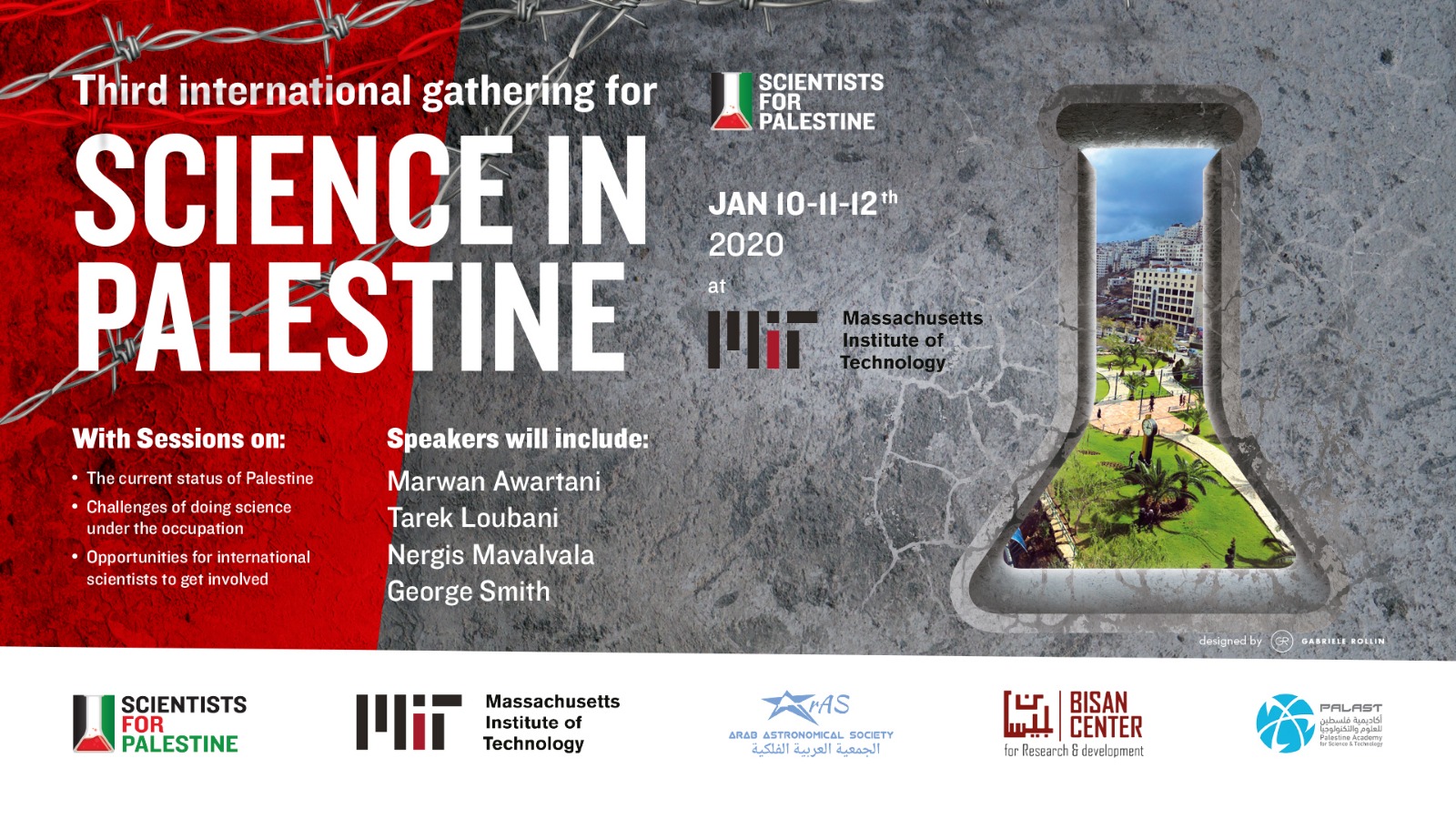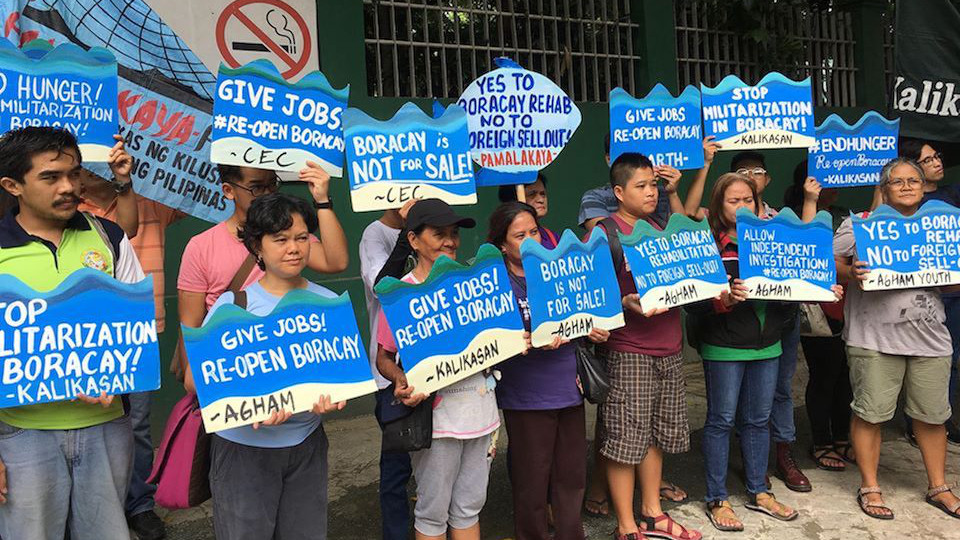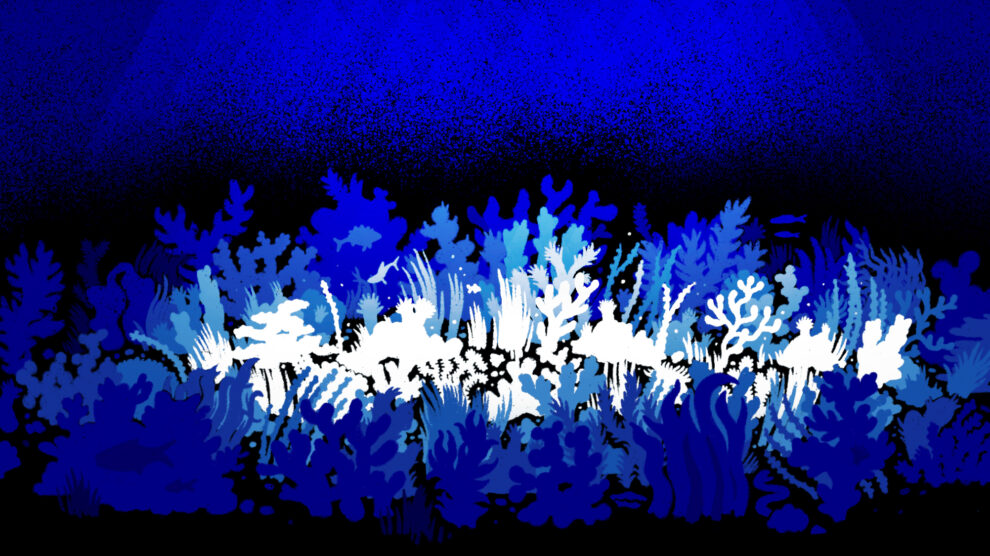Scientists for Palestine International Meeting
By Scientists for Palestine
Volume 23, number 1, Science Under Occupation
Science for the People‘s third issue, “Science Under Occupation,” (spring 2020) will share stories of communities living under occupation and conflict, and the ways in which science can be used as both a tool for liberation and as a weapon. Palestinians, in particular, know the horrors of occupation and injustice, including the recent abduction by the Israeli army of Ubai Aboudi, director of the Bisan Center for Research and Development, from his home in Ramallah. Learn more about the occupation of Palestine by reading and sharing this Letter for Ubai in support of Mr. Aboudi, registering for the Scientists for Palestine meeting next January, and subscribing to Science for the People. —Eds.
Palestinian scientists have been living under a harsh Israeli occupation for many decades now. Higher education and research in Palestine face extraordinary challenges as a result of the ongoing occupation of the West Bank and Gaza. Restrictions on the mobility of students and academics, international isolation, raids [1], forced closures of Palestinian universities [2] and scientific institutions, and assassinations [3] and imprisonment [4] without a trial of individual academics, have created a dangerous environment that is hostile to Palestinian scientists.
While interest in scientific education and research in Palestine continues to grow, the international scientific community has been slow to react and reaffirm the fundamental right to education for Palestinians. Scientists for Palestine (S4P) is an international organization founded in 2016 to take up these challenges and counter the hardships faced by Palestinian scientists under occupation. Created by and for scientists, S4P aims at integrating scientific research and education in the occupied Palestinian territories with the rest of the international scientific community.
The question of effective international solidarity with scientists who are living under occupation is not an easy one. There is no clear path ahead and there are few examples of successful organizations to follow. S4P has started its activity directly in Palestine by organizing two Palestinian Advanced Physics Schools, which took place at the Arab American University and Birzeit University, both of which are Palestinian Universities, in the summer of 2016 and the summer of 2017, respectively.
S4P has, in a short time span, grown from an initiative aimed at developing support for Palestine in the science community into a project working toward the development of transnational infrastructures that can support the sustainable development of Palestinian science and scientists on the world stage and in a way that remains connected and in service to the Palestinian people. These successes rely on three main points, providing a general lesson for what makes an effective international solidarity organization: 1) Palestinian leadership: Thanks to the initial physics school, S4P has, since its inception, created an organic relation with scientists in Palestine and is progressively transitioning toward a more prominent Palestinian leadership within the organization. 2) Relevance: S4P is not an echo chamber for criticism based on the impact of the Israeli occupation on Palestinian science. Instead, it strives to serve as a useful tool for promoting science in Palestine. 3) Quality: The high quality of the lecturers for our schools and our organized initiatives has insured consistent growth of the organization.
Building on the successes of the scientific schools, S4P has started organizing a series of International Meetings for Science in Palestine. The first two meetings were held at Cambridge University in January 2018 and at Columbia University in November 2018. S4P will hold its third international meeting at the Massachusetts Institute of Technology (MIT) January 10-12, 2020.
The International Meeting of Science for Palestine at MIT will be a climactic convening that will synthesize and put into action the findings, proposals and developments in S4P over the past three years. It will open on January 10with the panel “Overcoming the suppression of STEM: Practicing Science in the Occupied Palestinian Territories,” featuring our most prominent guests, including 2018 Chemistry Nobel Prize winner George Smith andPalestinian Minister of Education Marwan Awartani.
The panelists will analyze the extent to which the scientific community has thus far failed to stand in support of Palestinians and what can and should be done to change this pattern. The weekend will continue with various strategy sessions revolving around five5 key themes identified by the leadership of S4P as crucial for overcoming the stifling of Palestinian Science. The meeting will end with poster sessions to provide an opportunity for younger scientists to present their work. Priority will be given to Palestinian scientists.
For more information, please visit:
Scientists for Palestine homepage
Scientists for Palestine on Facebook






